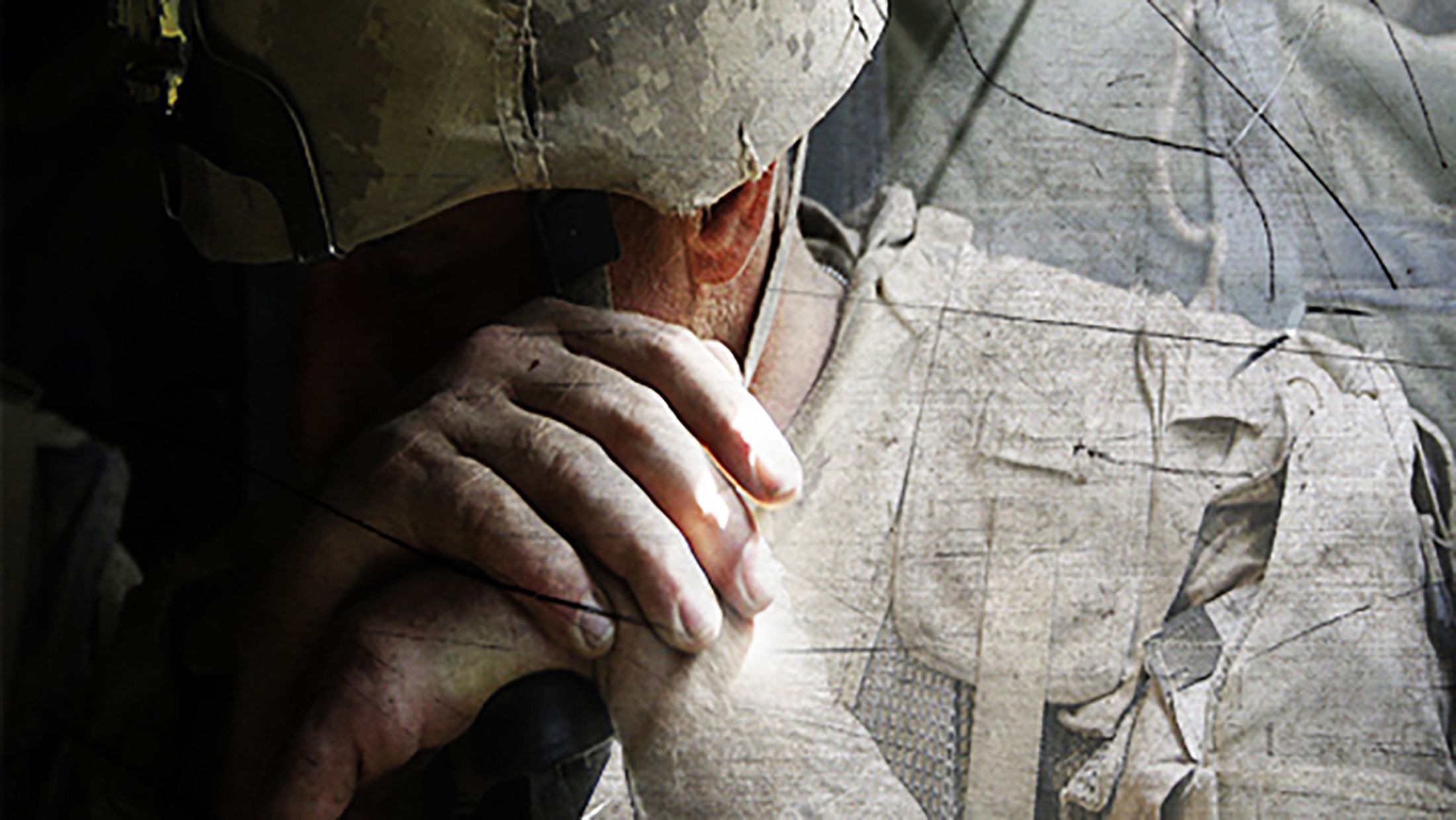The mental health watchdog says the VA and DoD waste billions of dollars on treatments that contribute to high suicide rates, sudden deaths and brain damage in veterans, and are investing in psychedelics that further harm
LOS ANGELES - Nov. 11, 2024 - PRLog -- On Veteran's Day, November 11, the Citizens Commission on Human Rights (CCHR) International honors veterans and calls for an end to subjecting them to cocktails of psychotropic drugs, psychedelics and electroshock treatment to treat their trauma and mental health issues. CCHR re-launched its documentary Hidden Enemy: Inside Psychiatry's Covert Agenda, featuring interviews with over 80 soldiers and experts who shatter the idea that these "treatments" have helped. Produced as a public service for active-duty soldiers, veterans and their families, the documentary provides information that the psychiatric-pharmaceutical industry does not divulge.
The documentary reveals how treatments provided to veterans very likely contribute to, and even induce, suicidal thoughts and actions. According to the U.S. Army Institute of Public Health, 46% of those who completed suicides, 90% of those who attempted suicides, and 87% of those with suicidal ideation received a Central Nervous System (CNS)-acting prescription in the year preceding the event.[1]
U.S. veterans account for about 13.9% of suicides among adults in the U.S. In 2019, 1.6% of veterans ages 18-25 reported making a suicide attempt during the previous 12 months.[2]
Dr. Bart Billings, a retired U.S. Army psychologist who has treated thousands of veterans suffering from trauma maintains that there is "a direct correlation" between the increased use of psychiatric drugs to treat this and the high rate of military suicides. He believes "probably 90 percent of psychiatrists, if not more, prescribe psychiatric medications. That's basically all they do. They don't do therapy anymore."
CCHR files Freedom of Information Act requests to the Department of Defense (DoD) and Veteran Affairs (VA) and found that between 2018 and 2023, the administration spent over $2.5 billion on psychotropic drugs. In 2023, 2.3 million vets were taking these drugs, of which: 66% (1.53 million) were on antidepressants; 43% (nearly 1 million) took mood stabilizers; 30% (697,174) were on anti-anxiety/sedatives and 13% (302,534) took antipsychotics.
The highest costs were for antipsychotics (49%) at $1,257,895,937; mood stabilizers costing $638,449,228 (25%) and antidepressants costing $416,322,108 (16%).[3]
CCHR says service members and veterans should never be put at risk of suicide from antidepressants, which carry a Food and Drug Administration (FDA) "black-box" warning of "suicidality" for those younger than 25. A CCHR submission to the VA pointed out that 41% of deployed American soldiers were 18-24, which means those prescribed antidepressants were put at greater risk of suicide.[4]
Internationally respected researcher Peter C. Gøtzsche, M.D. recently published a critique of the practices of suicide experts who claim antidepressants are effective for suicide prevention, arguing that they selectively present research and overlook evidence that contradicts their claims. Rather, he says, the drugs can actually double the likelihood of suicide rates. According to one study he cited, antidepressants increase the risk of repeated suicide attempts by 50%.[5]
When antidepressants fail, more invasive treatments, such as electroconvulsive Therapy (ECT) or electroshock is recommended. ECT involves the passage of up to 460 volts of electricity through the brain to induce a grand mal seizure, which can lead to brain damage.
Through a FOIA request to the VA, CCHR found that from 2018 to 2023, 2,527 veterans received ECT at a cost of $22.8 million—an amount reflecting only the VA's expenditures. Between 2010 and 2019 Tricare, the uniformed services health care program for active-duty service members and their families, paid $17.6 million on ECT delivery. The number of military and their family members who received ECT increased by 13% (from 648 people in 2010 to 732 people in 2019). The largest increase was in those aged 18–24 — a 226% increase.
Last year, a study published in Acta Psychiatrica Scandinavica found that after receiving electroshock treatment, patients were 44 times more likely to die by suicide than people in the general population.[6]
A new retrospective study published in BMC Psychiatry also points to ECT's failure. It found that patients who received ECT were more likely to be rehospitalized and had longer hospital stays compared to those who did not receive it. The rehospitalization rate for ECT recipients was 37.52% versus 20.71% for non-ECT patients. ECT patients also had significantly longer stays (average 14.53 days vs. 6.54 days for non-ECT). Females received ECT more often, while males had higher rehospitalization rates.[7]
With such high failure rates, the Department of Veteran Affairs is now prospecting psychedelic substances such as MDMA (Ecstasy), and psilocybin (magic mushrooms) to treat PTSD and depression. Yet a 2023 study published in Scientific Reports reported, "Unpleasant acute psychological experiences under psychedelics are not rare—even in research environments. For example, one notable study reported an approximately 40% prevalence of moderate to severe anxiety, panic or distress with high dose psilocybin in healthy volunteers."[8]
Dr. Gøtzsche advises that we could reduce our current usage of psychotropic drugs by 98% and at the same time improve patients' mental and physical health and survival.
CCHR, established in 1969 by the Church of Scientology and professor of psychiatry, Dr. Thomas Szasz, urges an immediate shift away from harmful psychiatric treatments that put veterans at risk of worsening mental health and even suicide. It also calls for greater transparency and accountability within the VA and DoD. "Veterans deserve care that prioritizes their well-being, not quick-fix, pharmaceutical-based solutions that aren't effective and often make their situations worse." Veterans are invited to visit CCHR's Museum: Psychiatry: An Industry of Death, 6616 Sunset Blvd., Los Angeles, California. Open Monday-Saturday, 10 a.m. - 5 p.m.
[1]
www.hsrd.research.va.gov/research/citations/PubBriefs/articles.cfm?RecordID=783
[2] www.cdc.gov/suicide/disparities/?CDC_AAref_Val=https://www.cdc.gov/suicide/facts/disparities-in-suicide.html
[3] www.cchrint.org/2021/09/13/cchrs-foia-request-to-veteran-health-administration-reveals-4-2-million-vets-prescribed-dangerous-drugs-costing-2-4-billion/
[4] www.cchrint.org/2020/11/11/cchr-urges-new-military-va-law-to-expand-study-into-all-psychotropic-drug-deaths/; www.cardin.senate.gov/newsroom/press/release/cardin-calls-for-scientific-study-to-determine-extent-of-link-between-antidepressant-use-by-combat-troops-and-military-suicide-rate
[5] www.madinamerica.com/2024/10/so-called-suicide-experts-recommend-antidepressants-which-increase-suicides/
[6] www.madinamerica.com/2023/02/ect-does-not-seem-to-prevent-suicide/
[7] bmcpsychiatry.biomedcentral.com/articles/10.1186/s12888-024-06211-2
[8] www.cchrint.org/2024/01/12/cchr-calls-for-ceasing-psychedelic-drug-trials-on-military-and-veterans/; www.nature.com/articles/s41598-023-41145-x
Photos: (Click photo to enlarge)

Source: Citizens Commission on Human Rights
Read Full Story - Veterans Day: CCHR Calls for Safeguards Against Drugging & Electroshocking Vets | More news from this source
Press release distribution by PRLog




